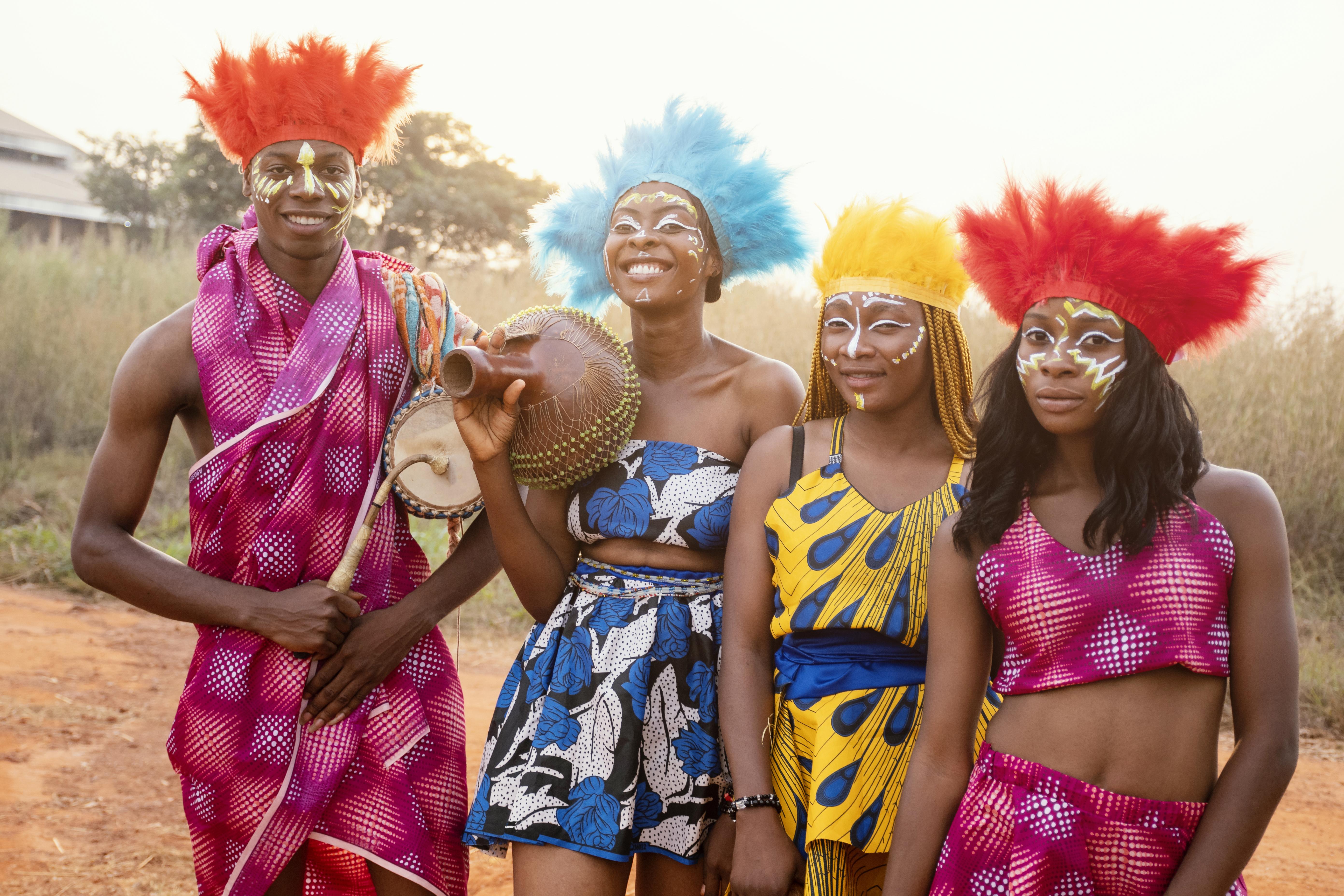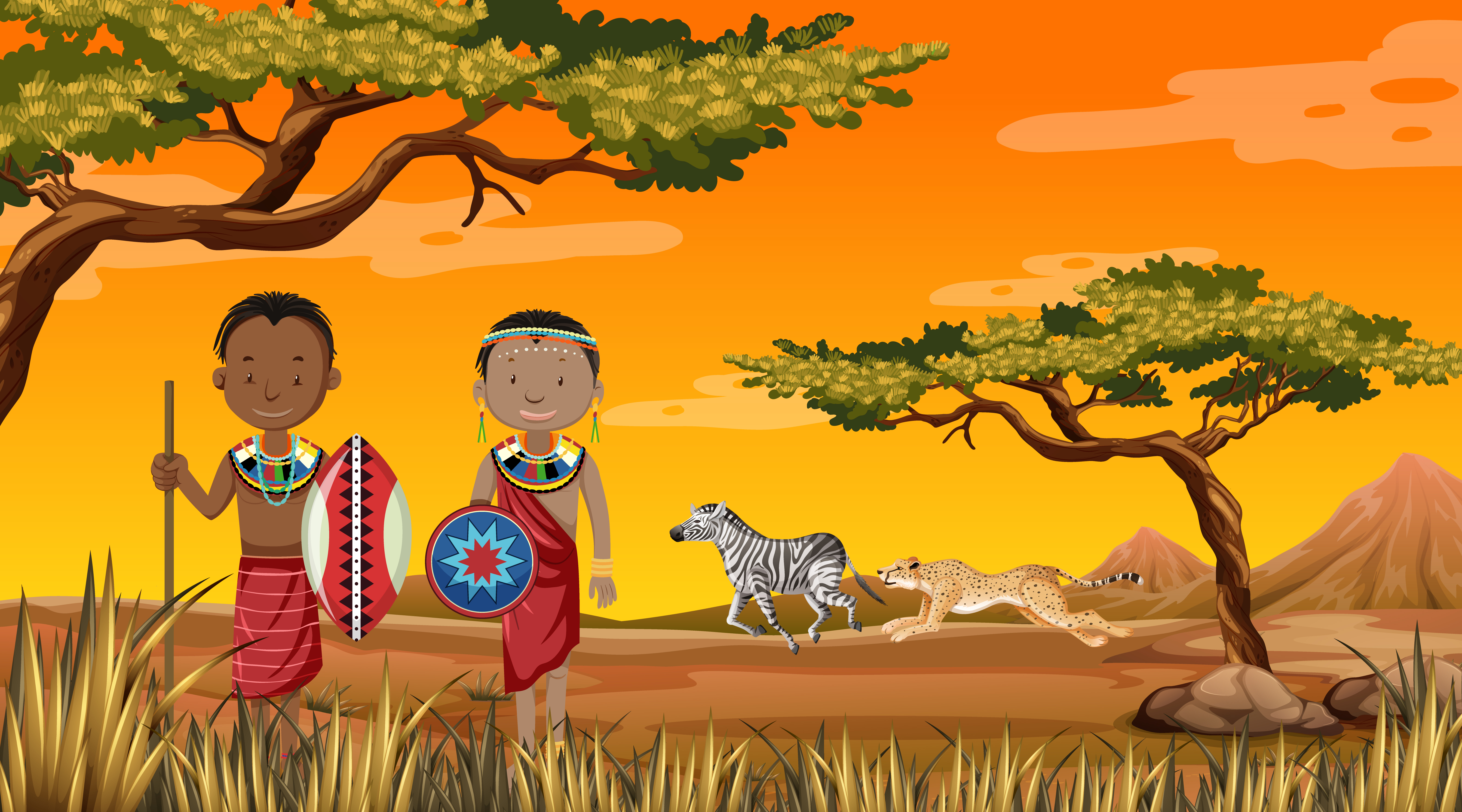Culture & Lifestyle
3 min read
Agikuyu Culture: Traditions, Beliefs, and Heritage of Kenya’s Largest Ethnic Group
KenyaHowTo Team
February 5, 2025

The Agikuyu, also known as the Kikuyu, are Kenya's largest ethnic group, primarily residing in the country's central highlands near Mount Kenya.heir rich cultural heritage encompasses language, social structures, spiritual beliefs, and traditional practices that have significantly influenced Kenya's history and development.
Language and Oral Traditions
The Agikuyu speak Kikuyu, a Bantu language characterized by its tonal nature, where pitch variations can alter word meanings.his linguistic feature adds depth to their communication, especially in oral traditions.torytelling, proverbs, and songs are integral to their culture, serving as vehicles for transmitting wisdom, moral lessons, and historical narratives across generations.
Social Organization and Age Sets
Agikuyu society is structured around extended family units known as 'mbari,' which are patrilineal groups comprising males, their wives, and children.hese units form the foundation of their social organization.eyond the family, the Agikuyu are divided into nine clans, each with its sub-clans. distinctive feature of their social system is the age-set structure, where individuals progress through various stages, each associated with specific roles and responsibilities.his system fosters unity and ensures the orderly transmission of leadership and cultural values.
Spiritual Beliefs and Practices
Traditionally, the Agikuyu are monotheistic, worshipping a supreme deity called Ngai or Mwene Nyaga, believed to reside atop Mount Kenya.gai is revered as the creator and provider, and the Agikuyu maintain a spiritual connection through prayers and rituals.ncestral spirits, known as 'mumbi,' also hold a significant place in their belief system, with rituals performed to honor and seek guidance from departed forebears.
Initiation Rites and Ceremonies
Initiation ceremonies are pivotal in Agikuyu culture, marking the transition from childhood to adulthood.or boys, circumcision is a central rite, symbolizing their readiness to assume adult responsibilities and roles within the community.emale initiation, traditionally involving specific rituals and education, prepares girls for their roles in society.hese rites are accompanied by teachings on cultural values, ethics, and expectations, ensuring the preservation of Agikuyu identity.
Agriculture and Economic Activities
Historically, the Agikuyu have been an agrarian society, with farming forming the backbone of their economy.hey cultivate crops such as maize, beans, and various vegetables, practicing intensive hoe cultivation.ome groups have also implemented irrigation and terracing techniques to enhance productivity.nimal husbandry complements their agricultural activities, providing additional sustenance and economic support.
Music, Dance, and Artistic Expression
Music and dance are integral to Agikuyu cultural expression, featuring traditional instruments like drums, flutes, and stringed devices.hese art forms are showcased during social gatherings, ceremonies, and celebrations, reflecting the community's values, history, and social dynamics.he Agikuyu also have a rich tradition of beadwork and crafts, with artisans creating items that hold cultural significance and aesthetic value.
Community and Cooperative Spirit
The Agikuyu place a strong emphasis on community cohesion and mutual support.raditional systems, such as the 'Harambee' (pulling together) spirit, exemplify this collective ethos, where community members unite to assist one another in times of need or to undertake development projects.his cooperative approach has been instrumental in fostering social solidarity and communal progress.
In summary, the Agikuyu culture is a tapestry woven with rich traditions, social structures, and spiritual beliefs.heir resilience and adaptability have enabled them to preserve their cultural identity while contributing significantly to Kenya's national narrative.
Language and Oral Traditions
The Agikuyu speak Kikuyu, a Bantu language characterized by its tonal nature, where pitch variations can alter word meanings.his linguistic feature adds depth to their communication, especially in oral traditions.torytelling, proverbs, and songs are integral to their culture, serving as vehicles for transmitting wisdom, moral lessons, and historical narratives across generations.
Social Organization and Age Sets
Agikuyu society is structured around extended family units known as 'mbari,' which are patrilineal groups comprising males, their wives, and children.hese units form the foundation of their social organization.eyond the family, the Agikuyu are divided into nine clans, each with its sub-clans. distinctive feature of their social system is the age-set structure, where individuals progress through various stages, each associated with specific roles and responsibilities.his system fosters unity and ensures the orderly transmission of leadership and cultural values.
Spiritual Beliefs and Practices
Traditionally, the Agikuyu are monotheistic, worshipping a supreme deity called Ngai or Mwene Nyaga, believed to reside atop Mount Kenya.gai is revered as the creator and provider, and the Agikuyu maintain a spiritual connection through prayers and rituals.ncestral spirits, known as 'mumbi,' also hold a significant place in their belief system, with rituals performed to honor and seek guidance from departed forebears.
Initiation Rites and Ceremonies
Initiation ceremonies are pivotal in Agikuyu culture, marking the transition from childhood to adulthood.or boys, circumcision is a central rite, symbolizing their readiness to assume adult responsibilities and roles within the community.emale initiation, traditionally involving specific rituals and education, prepares girls for their roles in society.hese rites are accompanied by teachings on cultural values, ethics, and expectations, ensuring the preservation of Agikuyu identity.
Agriculture and Economic Activities
Historically, the Agikuyu have been an agrarian society, with farming forming the backbone of their economy.hey cultivate crops such as maize, beans, and various vegetables, practicing intensive hoe cultivation.ome groups have also implemented irrigation and terracing techniques to enhance productivity.nimal husbandry complements their agricultural activities, providing additional sustenance and economic support.
Music, Dance, and Artistic Expression
Music and dance are integral to Agikuyu cultural expression, featuring traditional instruments like drums, flutes, and stringed devices.hese art forms are showcased during social gatherings, ceremonies, and celebrations, reflecting the community's values, history, and social dynamics.he Agikuyu also have a rich tradition of beadwork and crafts, with artisans creating items that hold cultural significance and aesthetic value.
Community and Cooperative Spirit
The Agikuyu place a strong emphasis on community cohesion and mutual support.raditional systems, such as the 'Harambee' (pulling together) spirit, exemplify this collective ethos, where community members unite to assist one another in times of need or to undertake development projects.his cooperative approach has been instrumental in fostering social solidarity and communal progress.
In summary, the Agikuyu culture is a tapestry woven with rich traditions, social structures, and spiritual beliefs.heir resilience and adaptability have enabled them to preserve their cultural identity while contributing significantly to Kenya's national narrative.
